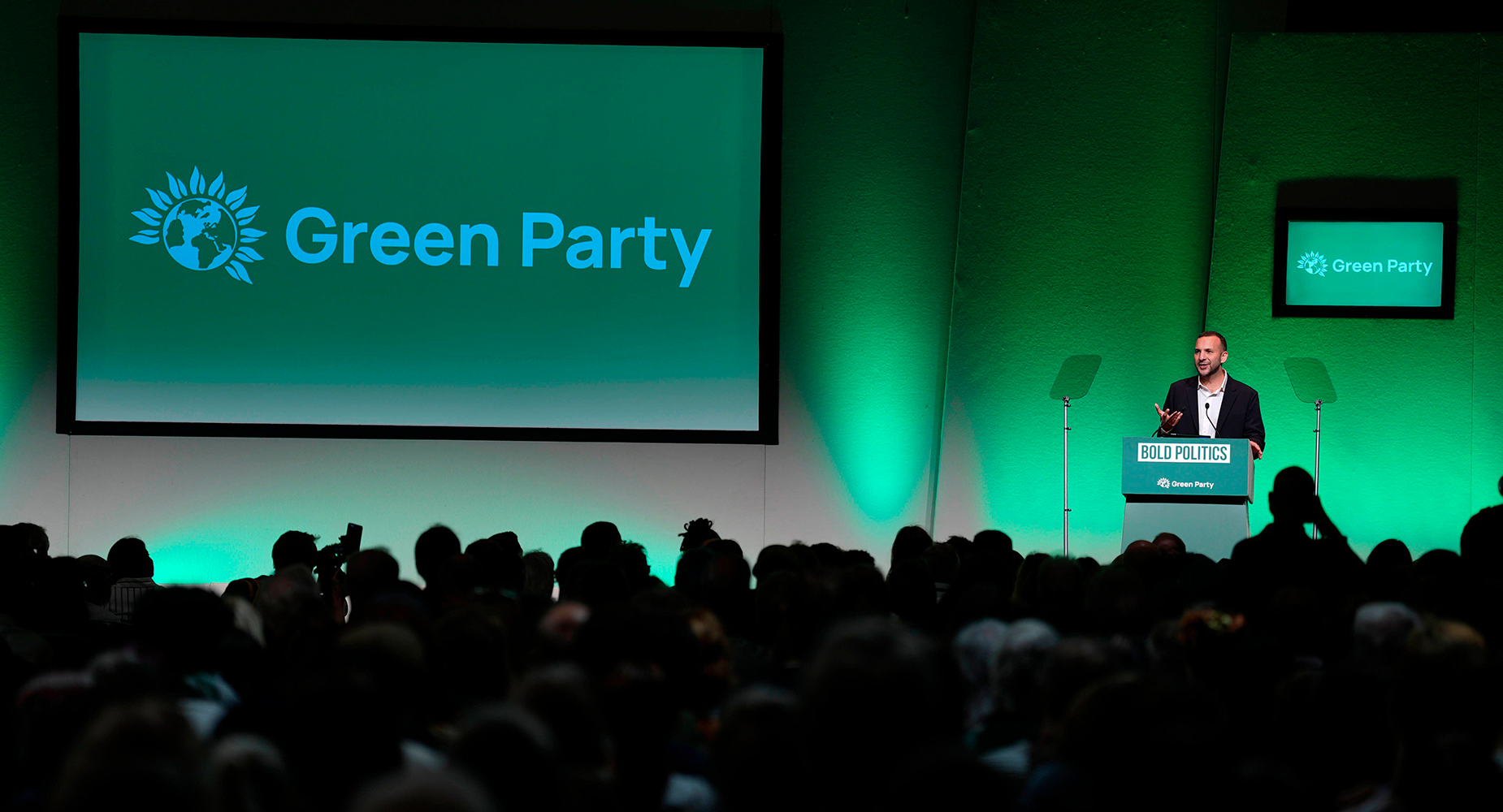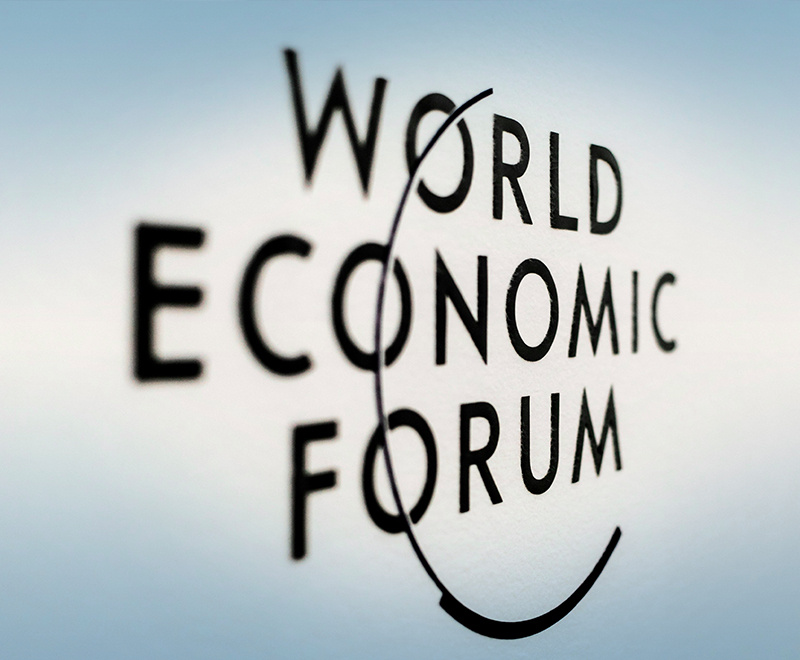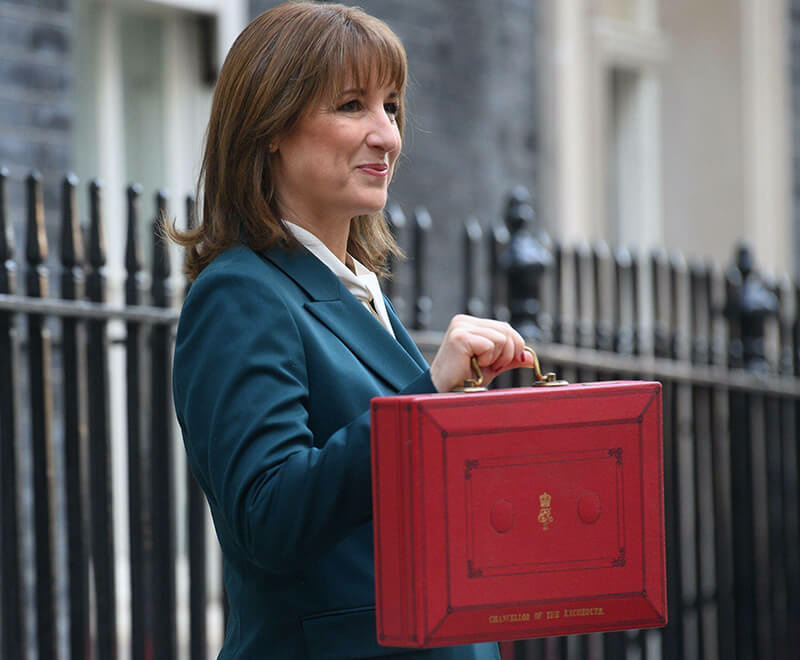One of the hopes of Labour Party high command is that there will be enough disillusioned Labour voters who are still prepared to vote Labour in 2029 to see off the threat of Reform.
But the problem with assuming that any left of centre voter has nowhere else to go relies on there being no popular alternative.
With Zack Polanski’s Green Party, that may no longer be the case.
Polanski, a London Assembly member, took 85% of the vote in the Green Party leadership elections this summer. He did so on an explicit platform of eco-populism. The pitch of his defeated rivals Ellie Chowns and Adrian Ramsey, which promised a loss-averse programme designed to nibble at Labour’s margins while retaining some support among the conservationist wing of Conservative voters, was decisively rejected.
Instead, Mr Polanski has promised the nationalisation of rail, energy and water, increasing taxes on the richest (including a wealth tax), a National Care Service free at the point of use, increased school funding, more free childcare, stricter rules on lobbying (hem hem), support for the Palestinian cause, decriminalisation of some drug offences, a closer relationship with Europe, and – of course – heavy investment in renewable energy.
Polled individually, many of these policies are popular with the public (although that was also true of Jeremy Corbyn’s 2017 and 2019 Labour manifestos). Phasing out fossil fuels and petrol and diesel cars are much less so. Despite Polanski’s successes so far, it is very unlikely that the Greens will win a majority or anything like it in 2029.
However, as we have seen with Reform since the 2024 General Election, a party does not have to be in power to influence Government policy: so far, two successive governments have found themselves dancing to Nigel Farage’s tune in an attempt to neutralise Reform’s attacks.
Labour MPs in the ‘Red Wall’ may well continue to fear losing their seats to Reform, but increasingly others are fearing being outflanked on the left.
MPs for university towns, constituencies all over London, parts of Manchester, Birmingham, Leeds, Bristol, Cardiff – even Liverpool – are likely to want to shore up their support on the left in a showdown with Reform.
As such, if local elections in May go badly for Labour and well for the Greens, they will begin to pressure the leadership to protect their left flanks, to pass some policies which might win them back the support of the centre-left voters the party has recently lost, and to show that Labour in government is the only real vehicle to implement progressive policies.
So far, Polanski’s leadership has been extremely effective – membership has swelled to over 95,000 on his watch, and his podcast (just over four weeks old) is at #92 on the charts (ahead of In Our Time and The Rest is Money).
Provocatively, he spent the first part of last week at Labour’s conference in Liverpool – taking selfies with apparently delighted attendees and making an explicit pitch to switch the allegiance of Labour members away from ‘Reform-lite’, as he’s termed the party.
Then from Friday to Sunday he was at his own party’s conference in Bournemouth (which Pagefield attended), where he doubled down on this approach. His speech focused far more on issues of social and economic justice than on what are normally thought of as ‘green’ issues; though he emphasised that climate justice and economic justice were intrinsically linked in the same struggle.
Certainly, what I observed at the Green’s conference was party going through evolution as well as growth.
Zack Polanski and deputy leaders Rachel Millward and Mothin Ali were in the thick of it – appearing on panels, popping up at fringe events, and chatting to supporters and attending journalists.
Many of those whom I spoke to were former Labour members – some had been on the left of the party, others had been middle-of-the-road Labour members for decades. Some had voted without much enthusiasm for Labour in 2024, keen to oust the Tories. Some had voted Labour full of enthusiasm, but had been disillusioned by the party’s rhetoric on immigration, its stance towards Gaza, and its moves to cut the Winter Fuel Allowance and disability benefits.
Indeed, even the deputy leader, Mothin Ali, had been a Labour member as late as 2020.
There were, of course, signs of the ‘old’ green party; there were motions to end the badger cull and calls for the investment of rivers with personhood – but even here there were explicit links with economic justice – river personhood as an aim was downstream of water nationalisation.
Motions to ‘abolish landlords’, passed at conference, will draw headlines, but the policy programme beneath the banner (rent controls, building, social housing provision) are popular. You should expect to see the Green’s leadership seizing the opportunity to illuminate the proposals behind the taglines on broadcast slots as often as they can in the coming months and years.
The constituency that Polanski and the Greens are targeting is not a majority of British voters. Like Reform’s likely 2029 voters, it is a significantly numerous minority.
Indeed, since the conference, the Greens have been gaining about 2000 members per day (it is very possible that membership will have breached the 100k mark by the time this piece goes live), and is polling at 15% – just two points behind Labour.
This isn’t just a hypothetical challenge for Labour. The Greens came second in 40 constituencies which Labour won in 2024.
Of course, we almost certainly won’t see Prime Minister Polanski smiling on the steps of Number 10 in 2029. But we may well see Green fingerprints on Labour’s manifesto, or see Green MPs as a notable bloc in a hung Parliament.
Since Brexit, UK politics has been destabilised. We’ve churned through Prime Ministers at a stunning rate, the Conservatives are possibly facing an existential challenge, and if current projections hold then Labour may well be too. In that context, it will be vital to make and hold connections and relationships with all parties.
The Green Party Conference did not have a long list of sponsors and exhibitors this year – and perhaps, in accordance with Mr Polanski’s recent criticisms of donor influence in Labour, it never will – but public affairs professionals would be unwise if they declined to make connections wherever they can.
Zack Polanski’s Green Party could be a force to be reckoned with in the coming years – the time to understand them is now.



